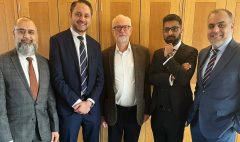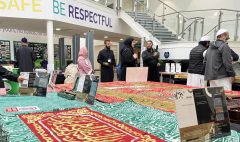Amsterdam violence exposes anti-immigrant Islamophobia in the Netherlands
November 18, 2024 2025-01-05 13:30Amsterdam violence exposes anti-immigrant Islamophobia in the Netherlands
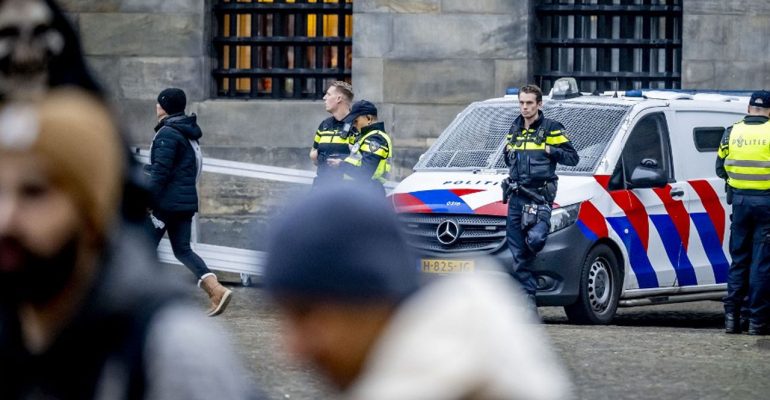
Amsterdam violence exposes anti-immigrant Islamophobia in the Netherlands
The episode has shined a light on racial tensions in the Netherlands, where a far-right party dominates the ruling coalition and reports of anti-Muslim discrimination are far higher than the E.U. average.
Article by and
What began as violent clashes between locals and Israeli soccer fans has spiraled into a clash of identities in the Netherlands, leaving many feeling their place in society is precarious, their belonging conditional, and their voices drowned out in a tide of blame.
The resignation of a Moroccan-born minister has added yet more fuel to a fire that has exposed deep racial and religious divides from the streets to the Cabinet office, bringing the government to the brink of crisis.
Deputy finance minister Nora Achahbar quit the Cabinet on Friday in protest after hearing alleged racist remarks during a closed-door Dutch Cabinet meeting.
Amsterdam was gripped by violence this month surrounding a match between Dutch team Ajax and the Israeli team Maccabi Tel Aviv. According to officials, the violence included “rioters who actively sought out Israeli supporters to attack and assault them,” sending five to hospital, and inflammatory and violent actions by some of the Israeli fans, who shouted phrases like “Death to the Arabs” and “Let the IDF win. We will f— the Arabs.”
The episode spread fear in the Jewish community — and revealed long-simmering frustrations over anti-Muslim rhetoric and Islamophobia in the Netherlands.
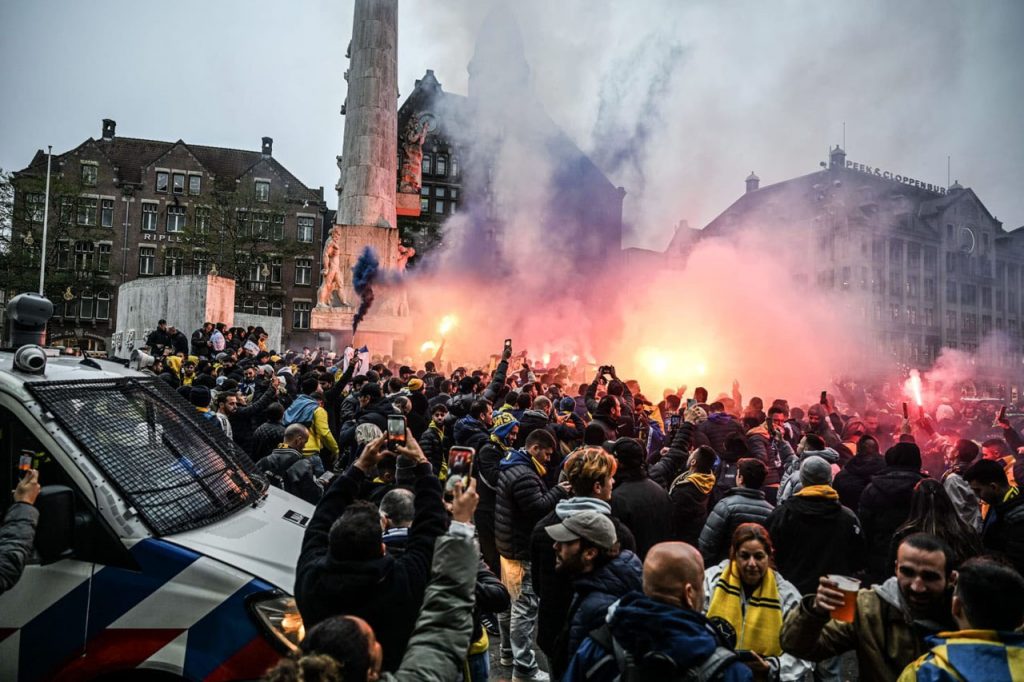
In statements made after the attacks, Geert Wilders — whose anti-Islam, anti-immigrant Freedom party (PVV) won the most seats in Dutch elections a year ago — blamed “Moroccans who want to destroy Jews,” and called for the perpetrators to be prosecuted “for terrorism, lose their passports and be kicked out of the country.”
Dutch Prime Minister Dick Schoof singled out the attackers as having an “immigration background” and said the Netherlands had an “integration problem,” a remark that analysts say collectively blames all Moroccan immigrants and Dutch people of Moroccan descent for the actions of a few. (Dutch police have not released the identities of those who have been arrested.)
Some have focused their anger on the community after some of the hooligans who attacked Israelis could be heard in videos of the attacks speaking Moroccan Arabic and Berber languages native to Morocco.
There’s almost 420,000 people of Moroccan descent living in the Netherlands, according to the Dutch Central Bureau of Statistics, representing 2.3% of the nation’s population.
The Dutch government has so far not taken any official action following the attacks.
Achahbar, who represents the centrist New Social Contract party, said in her resignation that “the polarizing interactions of the past weeks made such an impact on me that I am no longer able to effectively carry out my duties as deputy minister.”
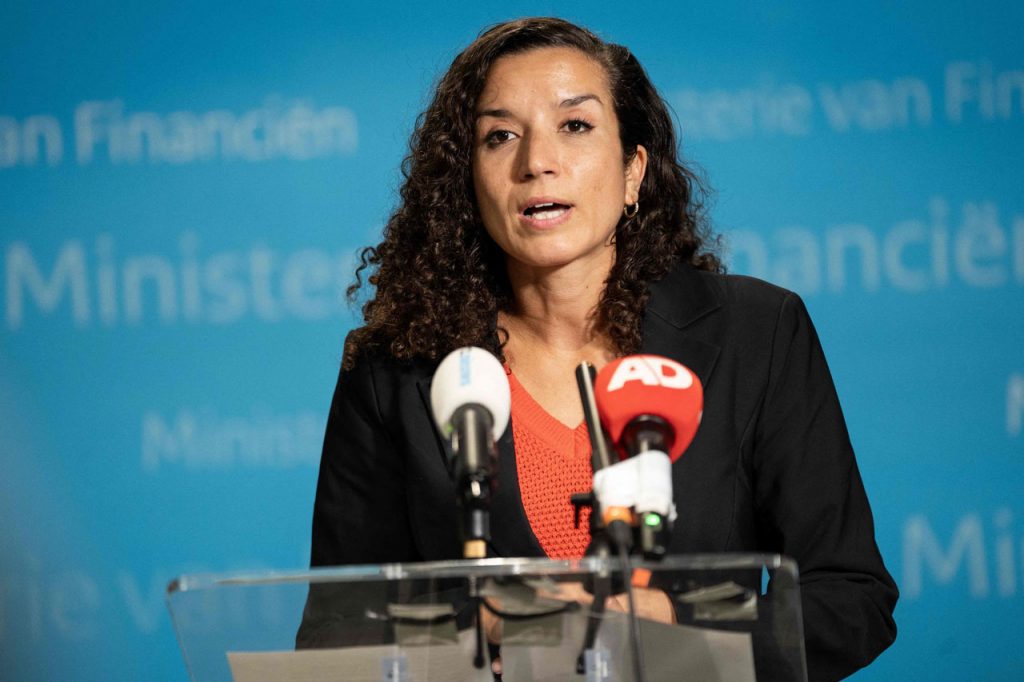
Her resignation triggered an emergency meeting in which other members of her party also threatened to quit the fragile coalition. Had they done so, the four-party coalition would have lost its majority in parliament.
Achahbar did not specify in her resignation letter what language was used, and by which colleagues. Schoof did not comment on whether racist things were said, but he denied any ministers in the Cabinet are racist. The details of the Cabinet discussion were not disclosed.
The episode has shined a light on racial tensions in the Netherlands, where Islamophobia is on the rise.
A report released this month from the European Union Agency for Fundamental Rights found that 50% of Dutch Muslims faced discrimination in the past year, significantly higher than the European average of 38%.
Another report released by the same agency in July found that 72% of Jewish people in the Netherlands thought hostility toward Jews in the streets or other areas was a “very big” or “fairly big” problem, among the highest rates in the E.U.
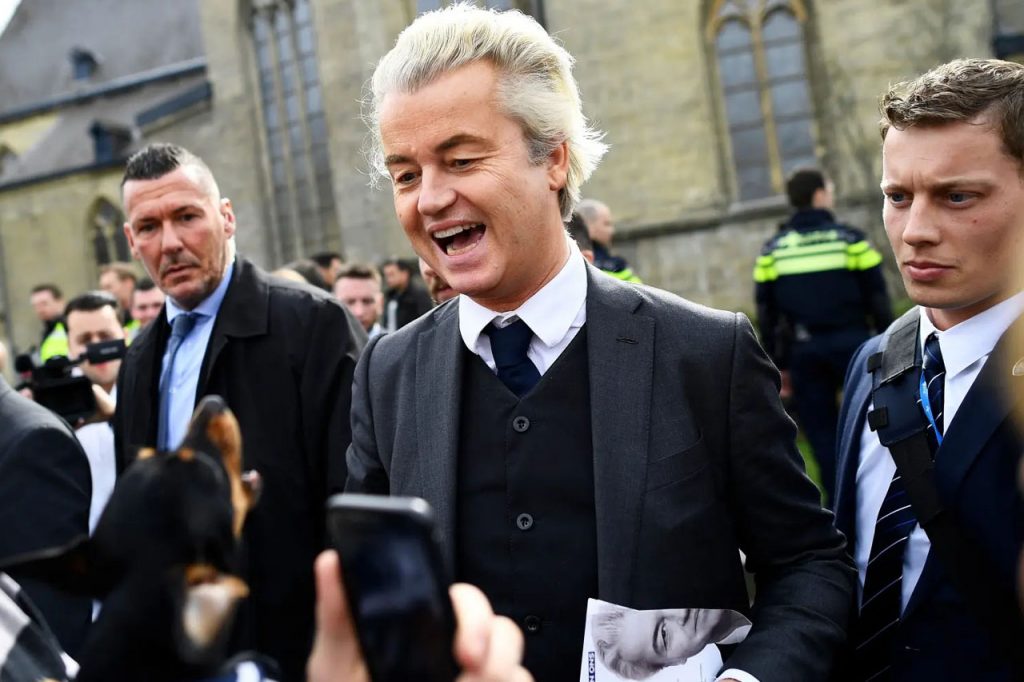
Not ‘full citizens’
Nassreddin Taibi, a Dutch Moroccan postgraduate student studying climate change governance, says Muslims and Moroccans are “still not seen as full citizens,” even after three or four generations of living in the Netherlands.
“My position in society, my nationality, is not sure, never sure, no matter what generation I am,” he told NBC News over the phone. “I always have to defend who I am.”
In a post on X, Taibi said that the government cannot begin to tackle antisemitism until it stops attacking Moroccans and Muslims.
“The Dutch govt wants to ‘exterminate’ anti-semitism,” he said. “How can they do that in any credible way when ministers can’t refrain from uttering racist rhetoric about Moroccans, Muslims?” Taibi added, citing offensive slurs that have circulated in local media.
“Imagine similar rhetoric being used against Jews. One wouldn’t politically survive for a single minute,” he said.
Bram Beute, the leader of a Protestant church in Amsterdam’s predominantly Muslim Nieuw-West neighborhood, said the government pointing to “failed integration and saying these people do everything wrong is a very one-sided story.”
“Many of these young people encounter difficulties in the job market, as they have to apply 30 times before they get a job or an internship, just because of their surname,” he told NBC News. “You can point to integration, but there is also a responsibility with the government and society.”
Led by Schoof, the current government is the most right-wing in Dutch history, which intensified when Wilders’ Freedom party finished first in elections last November, going on to dominate the ruling coalition.
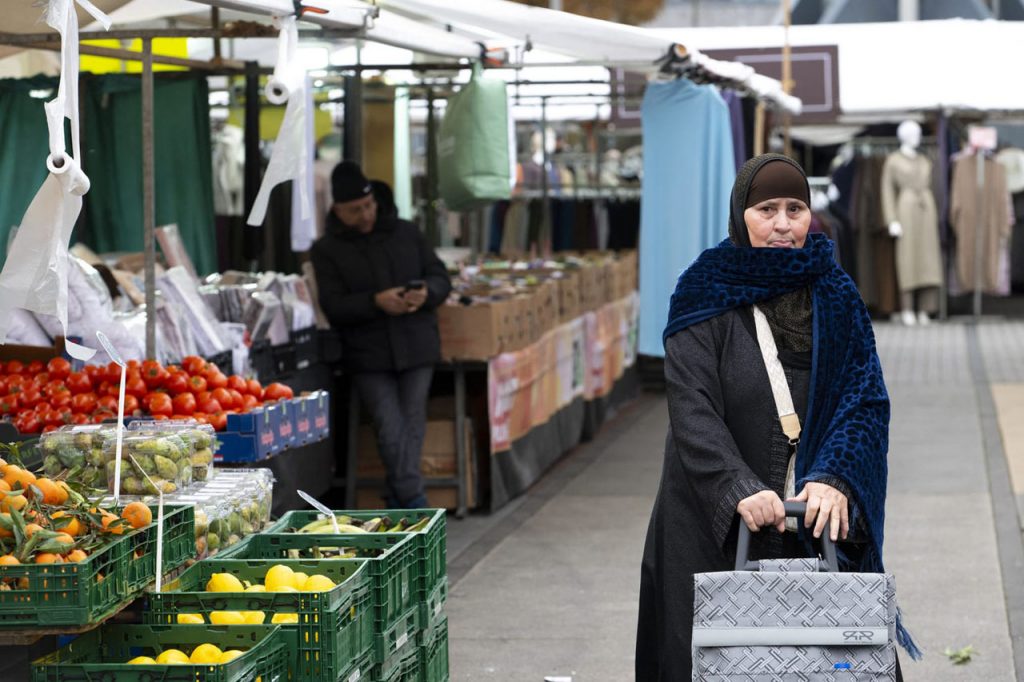
PVV’s manifesto called for a ban on mosques, the Quran and Islamic headscarves in government buildings. Wilders has also described Islam as the fascist ideology of a “retarded culture,” and a “backward religion.” In 2016 he was convicted of discrimination after he called Moroccans “scum” at a campaign rally.
His party’s rise to power reflects a broader trend where anti-immigrant right-wing parties have seen a surge in support across Europe this year, including in France, Austria and Germany.
Francesca Albanese, an expert for the United Nations Human Rights Council, posted on X that Islamophobia was coming to the fore through “Anti-Palestinian racism in European streets, squares, police stations, public offices, universities, schools.”
But in the Netherlands, frustrations in the Muslim community long predate the war in Gaza, the right-wing government and the recent riots.
Bert Klandermans, a sociology professor at Vrije University in Amsterdam, said violence like what broke out this month doesn’t emerge “without a history of anger and frustrations,” citing systemic inequalities that may have contributed to the eruption of tensions.
Steven Silvester, a teacher at a school in Nieuw-West, said the atmosphere in his “neighborhood was already rather grim” before the riots.
“These boys and girls are fully aware of the current political climate,” he told NBC News. “They can be 15 or 16 years old, but they really feel this, that they have to live under a [far-]right government who wants to see their failures confirmed.”
“And the difficult thing is that because of those riots,” Silvester added, “this gets confirmed.”
Both Wilders and Schoof have come under fire for their response to last week’s attacks, with some accusing the pair of weaponizing the event to stoke division with anti-Muslim rhetoric.
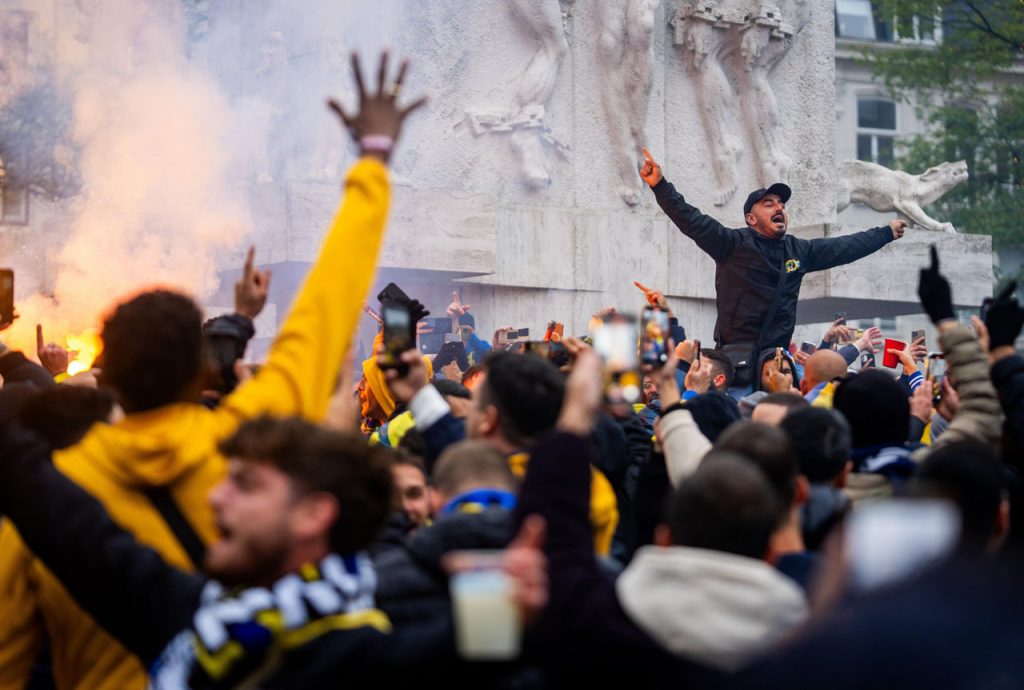
Muhsin Köktas, CEO of the Contactorgaan Moslims en Overheid (CMO), a Dutch partnership organization of over 380 mosques in the Netherlands, said Dutch politicians abused the chaos by using incendiary rhetoric following the violence.
“Politicians should try to unite people instead of fueling polarization,” he told NBC News.
Many Jewish people, meanwhile, were “really frightened,” according to Ruben Vis, a spokesperson for the Centraal Joods Overleg, which represents Jewish communities in the Netherlands.
“Amsterdam should be ashamed,” he said of the violence surrounding the soccer game.
As the fallout from the violence in Amsterdam continues to ripple through Dutch society, both Jews and Muslims feel it has fueled racism against their communities, leaving many afraid of what may lie ahead.
“Apparently a Cabinet meeting is a comfortable place for these people to say their racist thoughts out loud,” Taibi said.
“If a minister can say such things about Moroccans, then everyone is allowed to say that, right?”
Source: NBC News


